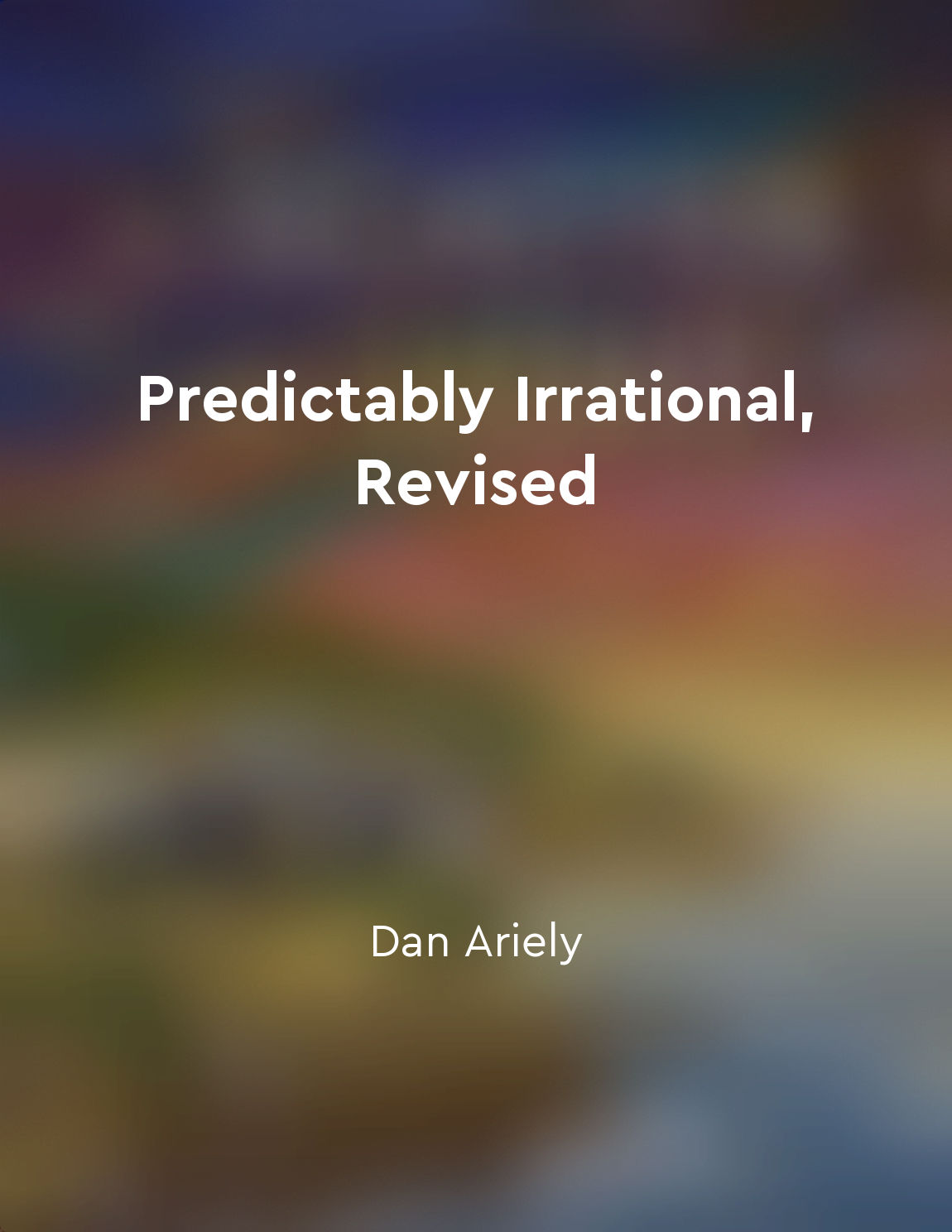Thaler advocates for libertarian paternalism from "summary" of Misbehaving by Richard H Thaler
Thaler's idea of libertarian paternalism is about guiding people towards making better decisions without restricting their freedom of choice. It recognizes that people often make irrational choices due to cognitive biases and heuristics. By understanding these tendencies, policymakers can design interventions that nudge individuals towards making better choices without imposing mandates. The term "libertarian" reflects the emphasis on individual freedom and autonomy. People should have the right to make their own decisions, even if those decisions are not always in their best interest. However, Thaler argues that policymakers can still influence decisions by changing the context in which choices are made. This approach respects individual autonomy while acknowledging the limitations of human rationality. On the other hand, the term "paternalism" acknowledges that there are instances where individuals may benefit from gentle guidance. This guidance is not meant to be coercive or restrictive but rather a subtle nudge in the right direction. For example, placing healthier food options at eye level in a cafeteria can encourage people to make better dietary choices without forcing them to do so. Thaler's concept of libertarian paternalism is rooted in the belief that individuals can benefit from a helping hand in navigating complex decision-making processes. By understanding the biases and heuristics that influence our choices, policymakers can design interventions that steer individuals towards better outcomes without infringing on their autonomy. This approach represents a middle ground between laissez-faire policies and heavy-handed regulations, offering a nuanced way to improve decision-making in various contexts.Similar Posts
Misunderstandings about prices
One of the common misunderstandings about prices is that they are simply arbitrary numbers that businesses decide to charge for...
Vivian finds her place in the world
Vivian Morris had always felt like a fish out of water in the world she was born into. She was expected to conform to society's...
Social welfare can be maximized through optimal government policies
The central idea put forth is that the well-being of society can be enhanced by implementing government policies that are caref...

We have a tendency to procrastinate
Procrastination is a common human behavior that most of us are guilty of at one point or another. We delay tasks that we know w...
Economic institutions impact wealth distribution
The way a society is organized economically has a significant impact on how wealth is distributed among its members. Economic i...

The quest for knowledge requires intellectual curiosity and a willingness to challenge assumptions
Intellectual curiosity is the driving force behind the quest for knowledge. It is the desire to explore, to question, and to un...

Taxation distorts incentives
The power to tax involves the power to destroy. The power to tax is the power to coerce and to control. Taxes are the price we ...
Popper asserts that history is contingent and openended
Popper argues that history does not follow any predetermined path or inevitable course. He emphasizes the importance of recogni...
The will of the people can dismantle tyranny
The essential idea put forth in this work is that the power of a tyrant relies solely on the obedience of the people. Without t...

The will to power drives human behavior and ambition
The driving force behind human behavior is the desire for power. This will to power is ingrained in our nature, pushing us to s...
